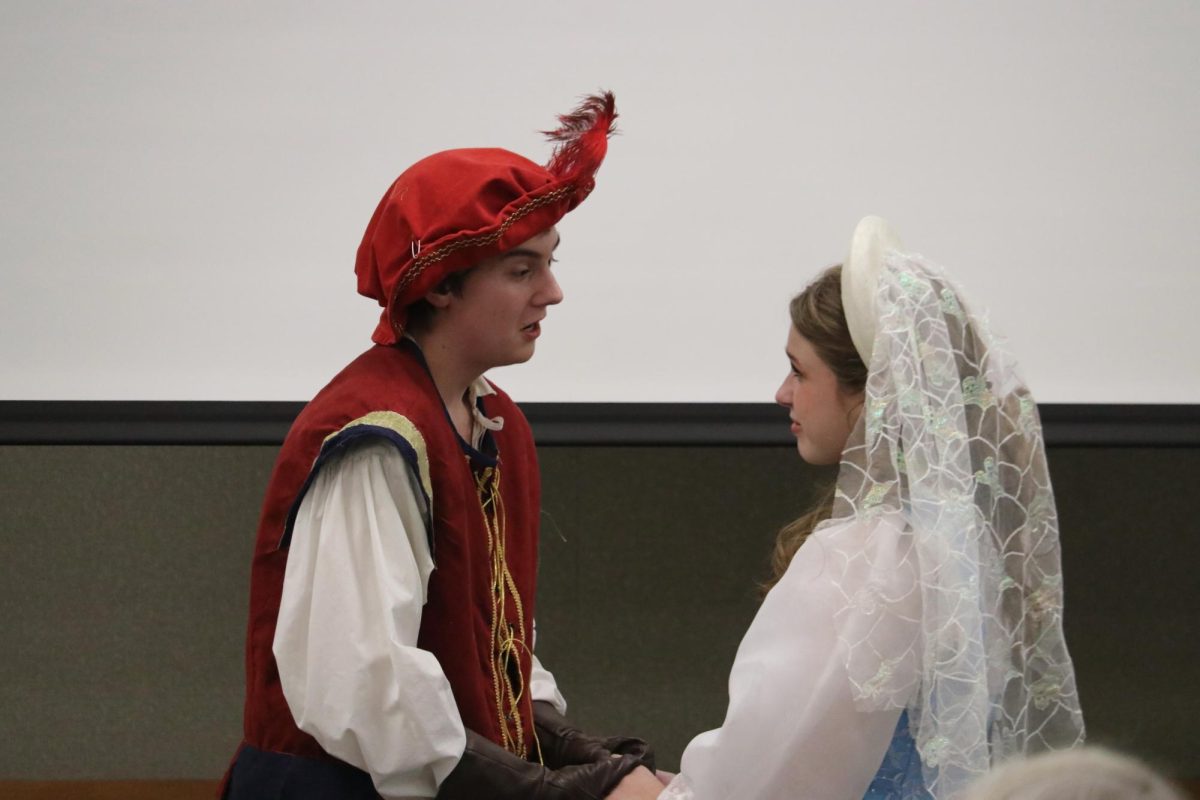A few years back, a number of classic works were cut from the LZHS English curriculum. Canon works like John Steinbeck’s “Of Mice and Men” and Harper Lee’s “To Kill a Mockingbird” were retired in favor of newer and, arguably, more relevant works. This year, however, one of the most famous and influential classic works is stepping back into the spotlight; presented in a way that might be more impactful than it ever was in a classroom.
The LZHS Theatre Department will be performing Romeo & Juliet through February 7-8. According to Cindy Malin, House Manager for the theatre department, this year will not only be the first time that Romeo & Juliet is performed in the PAC, but also a work from Shakespeare in general.
“Not only did we never do Romeo and Juliet, we’ve never done a Shakespearean show in this PAC—which is insane, because William Shakespeare is probably the best known playwright in the world,” Malin said. “He’s got over 40 works from Macbeth, to Romeo & Juliet, to Othello; I mean, the list goes on and on of these famous works, So when we were [planning a show] for the 20th anniversary, we said, ‘we need to do a Shakespeare play’. So, when we were debating about the plays that we were doing, we decided, ‘let’s do one of the most famous in the world’, and decided to do Romeo and Juliet.”
Shakespeare was not just new for the PAC, but for the actors performing in it who had to adjust to the Bard’s unique lingual style, as well as action scenes directed by a fighting choreographer. For Tom Skobel, theatre director, seeing students overcome those challenges was one of the best experiences in directing the play.
“Seeing students gravitate and understand Shakespeare has been really rewarding because, at first, I could see that there was some confusion with some of the words and what their character was doing, but as they started to work with it, they really started to connect with their character, and that’s been the best thing to see,” Skobel said.
To Skobel, that personal understanding by the actors helps the audience immerse themselves in the work—in a way that simply reading the text cannot.
“It takes the first ten or 15 minutes when you’re watching [the play] to understand and get in the rhythm of Shakespeare,” Skobel said. “But I think if we do our job correctly, and I think the students are doing really well with the emotions, [the audience] can read emotions [and] body language,” Skobel said. “That will help [people] understand [Shakespeare] versus when [they] just read it by [themselves, where] you’re not getting the non verbals; you’re not getting the tone of voice.”
Cultivating that connection to Shakespeare in the audience has been one of the main goals of the theatre department for this show. One way they have gone about achieving that is to invite students from other high schools to attend a special showing this Thursday, before the play would officially open on Friday.
“Romeo & Juliet is not something that’s mandatory at Lake Zurich High School, but a lot of schools in the state of Illinois teach it as part of the curriculum […] When we were discussing with our drama department, both the staff and the students, we said, ‘what’s a way that we can bring this to more students?’” Malin said. “So many students talk about it, it gets referenced in an ACT test, [and] when you have to compare literature to something else. People can use Romeo and Juliet. So we said, what can we do to help more students learn about Romeo and Juliet? And even if you have to read Shakespeare in class, there’s nothing like seeing it on stage.”
In fact, Skobel believes that those who watch a performance of Romeo & Juliet will have a better understanding of the material then those who analyze the play in a classroom setting.
“[The play is] meant to be heard and watched. It was not meant to be read by yourself. It was meant to be seen with others. The emotions, the story, the connections that are made on stage. That’s what Shakespeare was writing for. He was not writing novels. He was writing theater, which is connecting us in a room together,” Skobel said. “I think [the reason] why theater is so important, and why Shakespeare is so important is that we can experience a story together in the same room and have similar takeaways and understand about the world and who we are.”
The play will run this weekend, with showings on Friday, February 7 at 7:00 p.m. and Saturday, February 8 at 2:00 p.m. and 7:00 p.m. Tickets can be purchased here.


